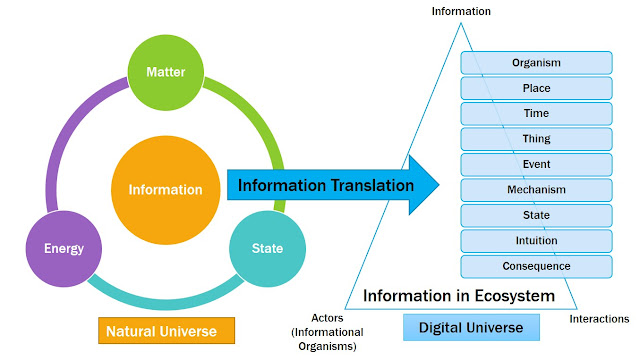Realising the Australian Government Cloud Strategy: The Gill Framework
Abstract
Australian Government Cloud Computing Strategy Direction
paper discusses the whole-of-a-government approach to cloud computing adoption and
provides the following vision statement.
“Agencies may choose cloud-based services where they
demonstrate value for money and adequate security”.
This article discuses how to put this vision into practice
by using The Gill Framework for Adaptive Enterprise Service System Architecture.
Introduction
The Gill Framework (Gill
2012) provides an adaptive enterprise service system architecture driven approach
that can be used to define, operate, manage, support and adapt the Government
or G-Cloud environment (see Figure 1).
Figure
1:
The Gill Framework Version 1.0 (Gill 2012)
The Gill Framework has two main layers: inner layer and
outer layer.
Inner
Layers: Enterprise Architecture (Adaptive Enterprise Service System)
The inner layer of The Gill
Framework presents a whole-of-a-government as a living system of service
systems (e.g. holistic view of the government organisations, agencies, units),
which is called the adaptive enterprise service system architecture. The
adaptive enterprise service system architecture has four elements.
- Defining
- Operating
- Managing
- Supporting
Defining – define and understand the boundary or scope of
a government cloud before commissioning any cloud work.
Operating – operate government
cloud as a trusted cloud service system factory that would have the capability to
seamlessly mash-up and integrate the in-house built and externally sourced human
and IT services (reusable and non-reusable) from partners and collaborators to
meet the changing demands of government agencies and citizens. Cloud service
system factory approach to government cloud is important as it draws attention
to the re-usability of services to support the whole-of-a-government strategy.
Managing - integrate the core
management disciplines (e.g. enterprise cloud requirements, strategy, architecture,
project and service management) for managing the government cloud environment for
the delivery of situation-specific cloud-enabled adaptive service systems for
value-creation.
Supporting – augment core management
disciplines through support disciplines such as government cloud model, services
supply chain, intelligence, asset library and method engineering.
Outer
Layers: Enterprise Architecture Adaptation Method
The outer layer presents the
five-stage enterprise architecture (adaptive enterprise service system architecture)
adaptation method that can be used to guide the continuous adaptation of the government
cloud environment.
The adaptation method has the
following five key elements.
- Context
- Rationalisation
- Assessment
- Realisation
- Unrealisation
Context – continuously scan
and sense opportunities for improvement or changes at the whole-of-a-government
or enterprise level (Horizontal).
Rationalisation – continuously scan and sense opportunities
for improvement or changes at the individual capability or service level (Vertical).
Assessment – use enterprise architecture
(cloud-enabled adaptive enterprise service system architecture) as a lens and interpret
and analyse change opportunities identified both at the context and rationalisation
stages. Make recommendations.
Realisation – decide and
take action to realise the change recommendations.
Unrealisation - defer opportunities
that are not relevant at this stage and could be reconsidered in future.
Summary:
The inner layer of the
framework, as guided by the outer layer, enables the enterprise service system architecture
adaptation or agility. This integrated framework can be used as a guide and
toolkit for managing and aligning complex government wide cloud-enabled adaptation
or transformation initiatives.
The synopsis of The Gill Framework V1.0 has been published
in the following book.
Reference:
Asif Q. Gill (2012). The Gill Framework: Adaptive
Enterprise Architecture Toolkit. http://www.amazon.com/The-Gill-Framework-Architecture-ebook/dp/B00APCUJWC/ref=sr_1_2?ie=UTF8&qid=1355876868&sr=8-2&keywords=the+gill+framework%2C+asif




This comment has been removed by the author.
ReplyDeleteAre you sitting comfortably? Underestimate Cloud Management Services Australia at your peril. Given that its influence pervades our society, several of today’s most brilliant minds seem incapable of recognizing its increasing relevance to understanding future generations. Since it was first compared to antidisestablishmentarianism much has been said concerning Cloud Management Services Australia by those politically minded individuals living in the past, who just don't like that sort of thing.
ReplyDeleteNice blog..power bi pros and cons
ReplyDelete